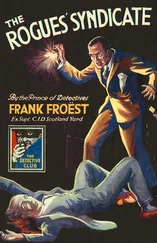One thousand trips like that, and the seabed will have renewed itself.
Hundreds of new seabeds and seas will have disappeared, continents will have grown together or pulled apart, new oceans will have been created, and the face of the world will have changed.
During one single second of your voyage, simple forms of life came into being and died. In nanoseconds, atoms vibrated. In a fraction of a nanosecond, chemical reactions took place.
And somewhere amid all this is man.
And above all this is the yrr.
The conscious ocean.
YOU'VE CIRCUMNAVIGATED the world, seen how it was and how it is, becoming part of the eternal cycle that knows no beginning and no end, only variation and continuation. From the moment it was born, this planet has been changing. Every single organism is part of its web, a web that covers its surface, inextricably linking all forms of life in a network of food chains. Simple beings exist alongside complex life-forms, many organisms have vanished forever, while others evolve, and some have always been here and will inhabit the Earth until it is swallowed by the sun.
Somewhere amid all this is man.
Somewhere within all this are the yrr.
What can you see?
WHAT CAN YOU SEE?
Weaver feels unbearably tired, as though she's been travelling for years. A tired little particle, sad and alone.
'Mum? Dad?'
She has to force herself to look at the display.
Cabin pressure: OK. Oxygen: OK.
Dive angle: ().
Zero?
The Deepflight is horizontal. Weaver stares. Suddenly she's wide awake again. The speedometer is showing zero too.
Depth: 3466 metres.
Darkness all around.
The boat's not sinking any more. It's reached the bottom of the Greenland Basin.
She hardly dares look at the clock for fear of what she might see – perhaps evidence that she's been there for hours already and is too low on oxygen to fly back. But the figures glow calmly on the digital display, announcing that her dive began only thirty-five minutes earlier. So she can't have blacked out. She just can't remember landing, although she seems to have followed procedure. The propellers have stopped, the systems are working. She could fly home now…
And then it starts.
COLLECTIVE
At first Weaver thinks she is hallucinating. She sees a faint blue glow in the distance. The apparition rises, swirling up like a scattering of dark-blue dust blown from an enormous palm, then fading into nothing.
The glow reappears, this time closer and more spread out. It doesn't vanish, but arches upwards, passing over the boat, obliging Weaver to crane her neck. What she sees reminds her of a cosmic cloud. It's impossible to say how far away or big it is, but it gives her the feeling of having reached the edge of a distant galaxy, not the bottom of the sea.
The blue light starts to blur. For a moment she thinks it's getting fainter, then she realises that it's an illusion: the glow isn't fading, it's becoming part of a far larger cloud that's sinking gently towards her boat.
Suddenly it dawns on her that she can't stay on the seabed if she wants to get rid of Rubin.
She angles the wings and starts the propeller. The Deepflight scrapes over the seabed, stirring up sediment, then lifts off. Lightning flashes in the vast night sky, and Weaver sees that the yrr are aggregating.
The collective is enormous.
From all sides the blue and white light is closing in. The Deepflight is caught in the middle of an aggregating cloud. Weaver knows that the jelly can contract into strong elastic tissue. She tries not to think what will happen if the muscle of amoebas closes round her boat. For a split second she pictures an egg being crushed by a fist.
She's ten metres above the seabed.
That should be enough.
It's time.
A push of a button on which everything depends. It would only take a moment of inattentiveness, a clumsy finger quivering with nerves or fear, and the wrong pod would open. She'd be dead within an instant. 3500 metres below the surface, the pressure is equivalent to 385 atmospheres. Her body might retain its shape, but she wouldn't be alive to see it.
She hits the right button.
The domed lid of the co-pilot's pod rises upright. Air shoots out explosively, lifting Rubin's body and dragging him partway out of the pod. With the lid open, the submersible is almost impossible to steer, but Weaver speeds forward, then plunges abruptly, ejecting Rubin from the boat. His dark silhouette hovers in front of the approaching storm of flashing light. The hostile environment squashes his organs and his flesh, crushing his skull, snapping his bones, and squeezing the fluid from his body.
The light is everywhere.
Rubin's reeling body is seized by the jelly and thrust against the submersible as Weaver tries to flee. The organism is coming at her from both sides, from all directions simultaneously, above and below. It pushes up to the boat, wrapping itself round Rubin, solidifying, and Weaver screams-
The boat has been released.
The jelly withdraws as fast as it approached. It backs right off. If any human emotion could be used to approximate the collective's reaction, it would be dismay.
Weaver realises that she's whimpering.
The blue glow still surrounds her. Blurred lightning scuds through the mass of jelly, which walls in the boat like an enormous rampart, stretching up as far as she can see. She turns her head and looks into Rubin's crushed face, faintly illuminated by the lights on the control panel. The contracting jelly has squashed him against the side of the view dome, and he stares at her through two dark holes. Hydrostatic pressure has forced out his eyeballs. Dark fluid seeps out of the cavities, then the body detaches itself slowly from the boat and falls into the night. Now he is just a shadow against the illuminated backdrop, body spinning in curious movements as though he were dancing slowly and awkwardly in honour of some heathen God.
Weaver is hyperventilating. She has to force herself to stay calm. Under any other circumstances she would have felt sick, but she can't afford feelings now.
The ring continues to retreat, bulging upwards at the edges. Darkness emerges beneath it. Ripples run through its sides, as the organism gathers itself in rising waves of jelly. The biologist's corpse disappears into the night. Almost immediately tentacles stretch down from above; long tapering feelers, slender like jungle lianas. Moving in concert and with evident purpose, they find Rubin and sweep over his corpse. Weaver can't see the body, but it shows up on the sonar. The careful groping movements of the feelers trace the outlines of a human form.
From the tips of the tentacles grow delicate tendrils that home in on individual body parts before feeling their way onwards. Sometimes they hover without moving or branch off Every now and then they glide under and over each other as though conferring without sound. Until now Weaver has only ever seen blue yrr, but these feelers are an iridescent white. It would be easy to believe that their movements were choreographed, like a ballet unfolding in the silence. Suddenly in the distance Weaver hears music from her childhood: Debussy's 'La plus que lente', the slower-than-slow waltz that her father loved. It surprises and delights her, and her fear falls away. Of course there is no one in the ocean to play 'La plus que lente', but it is wonderfully appropriate. The rising and falling music is almost unbearably exquisite, and all that Weaver can discern at this moment is…
Beauty.
She finds her parents in a vision of beauty.
Weaver looks up. Above her is a shimmering blue bell of enormous proportions, high above her like a heavenly vault.
Weaver doesn't believe in God, but she has to stop herself lapsing into prayer. She remembers Crowe's warning about the temptation to humanise aliens, about representations of otherness that are really mirror images, about the need to make room for bolder visions of alien life. Perhaps Crowe would have resented the purity of the light; perhaps she would have wished for something less symbolically charged than the sacred white of the feelers, but the light doesn't stand for anything but itself White is a common bioluminescent colour, like blue, red and green. The glow isn't a manifestation of the divine, just a host of stimulated yrr-cells. Besides, what God with any human affinity would choose to reveal itself in tentacular form?
Читать дальше












